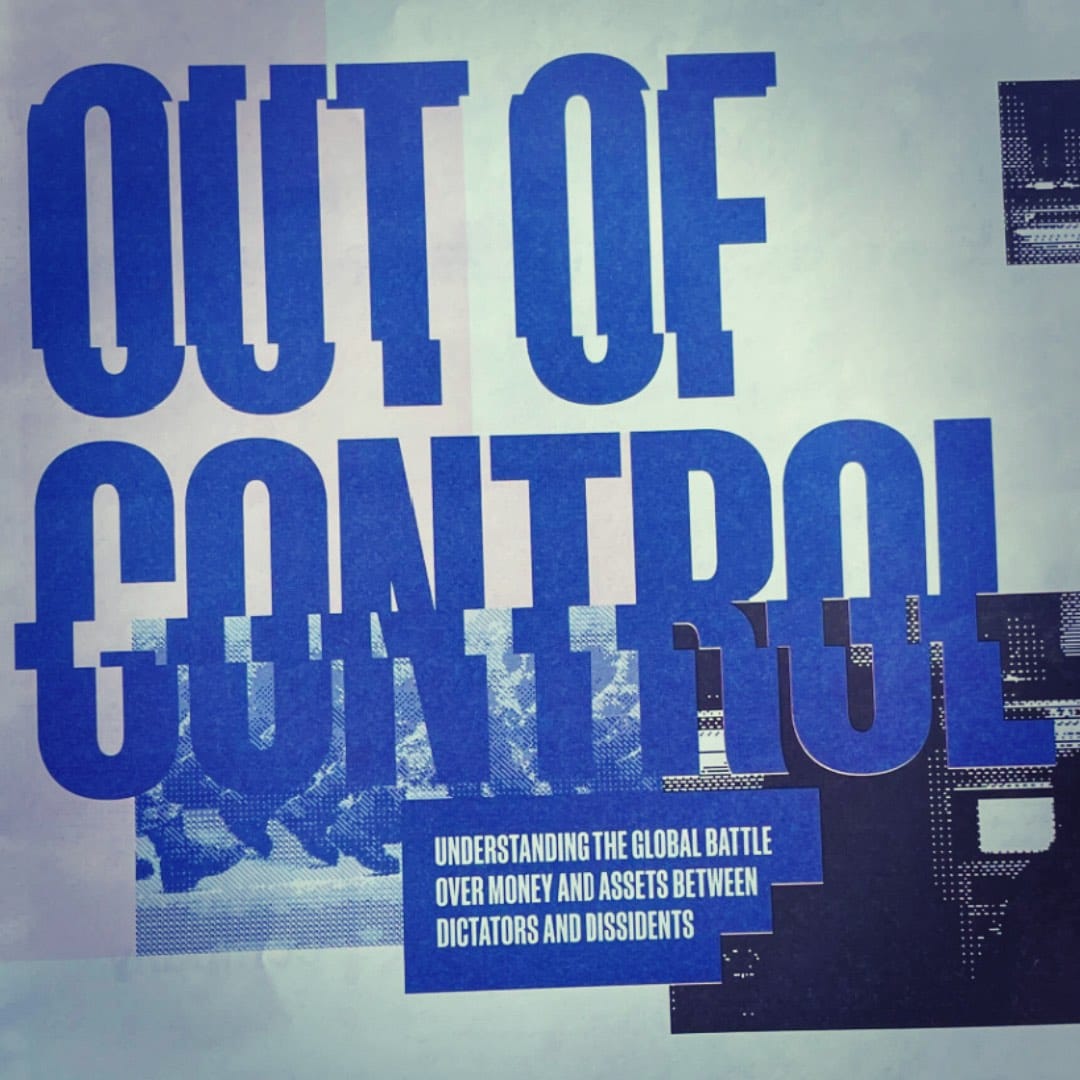Not as it seemed

Recently: Why are people’s cognitive skills declining? Gloria Mark on how consumer technology is making us more error-prone, more stressed, and less productive.
Today: The man in custody for the murder of Charlie Kirk confounds expectations. The U.S. administration claims national self-defense against a retreating boat. & A septuagenarian judge becomes prime minister in Nepal through an election on Discord.
In this week’s member’s despatch—up now:
Is American political violence at a new point of danger, or playing out old patterns at digital speed? What do recent foreign military strikes by the U.S. and Israel say about sprawling executive powers. & Why Nepal’s government collapsed so fast—and what it means about the gap between apparent stability and actual resiliency in interconnected systems.
Also: Trita Parsi on how Iran’s standoff with Israel and the West is affecting everyday Iranians’ feelings about the regime. Matthias Matthijs on why France is stuck in political crisis. Hywel Mills, with an update on our migration to Ghost. & John Jamesen Gould on what’s ahead.
& Weather report: 31.1704° N, 72.7097° E …
+ Cultural intelligence: Is China’s economy becoming as strong as America’s? Branko Milanović’s The Great Global Transformation: National Market Liberalism in a Multipolar World. For the last time (?!), new music from Saint Etienne? &c.
An unusual suspect
The U.S. Federal Bureau of Investigation and Utah officials announced on Friday morning that they’d arrested a 22-year-old Utah man, Tyler Robinson, late on Thursday evening Mountain Time for the Wednesday assassination of the American political activist Charlie Kirk.
Robinson had allegedly etched a mixture of gaming references and internet memes onto his ammunition, confounding early assumptions about his ideological profile. While authorities described the bullet inscriptions as “anti-fascist,” Robinson’s background indicates a trajectory from being a high-school Trump supporter to, it appears, a politically unaffiliated gamer whose motivations resist straightforward categorization.
His arrest capped days of established-media and social-media speculation assuming Kirk’s killer to have been motivated by one form or another of left-wing political commitment.

Wrong way
The Venezuelan “drug boat” that the U.S. military struck on September 2, killing 11 people, was heading back to shore, American national-security officials acknowledged during a closed congressional briefing this week. The Trump administration has claimed “self-defense” as its legal justification for the attack, with Secretary of State Marco Rubio arguing that drug cartels “pose an immediate threat” to the United States.
The detail raises new questions about the administration’s rationale for blowing up the boat, and both Democratic and Republican senators have now expressed dissatisfaction with the legal basis for the strike, as well as the lack of congressional authorization for what they argue constitutes military action against another country.
The Republican Senator Rand Paul of Kentucky noted it was “unlikely the boat was headed to U.S. shores, which would be a lengthy trip for such a vessel,” while the Democratic Senator Jack Reed of Rhode Island said the administration has provided “no proof that this vessel was engaged in an attack.”
The detail suggests either the administration’s self-defense claim depends on a definition of “imminent threat” that includes moving away from a supposed target or else something as yet unspecified has gone significantly wrong here.
Quick work in Kathmandu
The former chief justice Sushila Karki, 73, was sworn in on Friday as Nepal’s first female prime minister after Gen Z protesters selected her through a Discord vote—after a week of deadly demonstrations forced the resignation of Prime Minister K.P. Sharma Oli and left at least 51 people dead. The choice confounded expectations: Young protesters demanding generational change settled on a septuagenarian from the judiciary of the very establishment they were protesting against.
Karki’s appeal seems to lie in a singular judicial record that positioned her as an anti-corruption crusader willing to challenge political power. She overturned the government’s choice for police chief in 2017, triggering an impeachment attempt that was later withdrawn amid public backlash. As one 28-year-old protester said, “We want someone who has integrity and is not a political opportunist. She fits that category for us”—adding that Karki is “the only figure that the entire country can rely on.”
Odd as it may seem, the contradiction could indicate how thoroughly Nepal’s political class has lost credibility with its youth: When demanding new leadership, protesters found an optimal candidate in someone whose defining public moments came from standing against the political system they took down.

The Signal’s new print extra is here. A limited-run newsprint magazine, Out of Control explores the global battle over money and assets between dictators and dissidents.
This special edition features conversations with Félix Maradiaga, Farida Nabourema, Roger Huang, and Justin Callais—on what financial repression is, how dissidents are using Bitcoin, why countries around the world are developing their own digital currencies, and what financial repression in the autocratic world has to do with financial freedom in democracies.
Currently available in the U.S.A. To register interest in ordering internationally, or with any questions, please be in touch: concierge@thesgnl.com.
This week, in the member’s despatch
Present tense
The question of political violence in America
Utah authorities arrested Tyler Robinson, 22, on Thursday night in connection with the assassination of American political activist Charlie Kirk at Utah Valley University this week. Robinson apparently confessed to relatives and left messages engraved on a set of bullet casings—the one he fired and several others: a curious mixture of antifascist references (“Bella ciao,” “Hey fascist! Catch!”) alongside phrases and symbols representing internet meme culture and video-game controller sequences.
Perhaps understandably, since Kirk’s murder on Wednesday, a lot of commentators have been framing the crime within the narrative of escalating American political violence—a broader picture that having Robinson in custody now doesn’t do much to clarify. What the clues about his motivations actually mean is still ambiguous—seeming in some ways to match recognizable patterns of contemporary polarized political rhetoric and, in others, to vary from it quite strangely: terms from political ideology jumbled with trolling and memes, steeped in idioms from internet subcultures where irony and sincerity blur, where antifascist rhetoric mingles with gaming references and crude jokes. His bullet casings read less like fragments of a political manifesto and more like a fever dream of online culture. So it’s a question how Kirk’s death fits into broader patterns of political violence in America.
What are those patterns?
Two missile strikes, one question
The connection between unrelated military operations in the Caribbean and the Persian Gulf
Early in the first week of September, the U.S. military struck what officials called a Venezuelan “drug boat” in Caribbean waters, killing at least three people aboard the vessel. The operation proceeded without congressional authorization, part of Trump’s escalating military pressure on Nicolás Maduro’s government. Meanwhile, Israel conducted its first direct attack inside Qatar’s territory since the war began, striking Hamas leadership in Doha while they were meeting to discuss U.S. President Donald Trump’s latest ceasefire proposal. The strike killed Hamas chief negotiator Khalil al-Hayya’s son and office manager, along with a Qatari security officer.
Both the U.S. and Israel have established records of conducting stand-alone military operations beyond their border, beyond their established patterns of conduct, and even arguably beyond the strictures of international law. But the two attacks are nevertheless striking—separately and together: The U.S. struck a vessel in international waters without the congressional authorization typically required for military action against another country. Israel attacked negotiators in the capital of a mediating nation right in the middle of active diplomatic talks—violating the idea of neutral ground that’s made international mediation possible for decades.
The immediate consequences are already visible: Venezuela has threatened to escalate its own military response, whatever that may amount to; and Qatar’s leadership has announced they’re reconsidering their country’s role as mediator in Gaza-ceasefire negotiations.
How unusual is this?
Sparks and embers
Five days in Nepal
Nepal’s government collapsed rapidly and entirely this week. Last Thursday, September 4, authorities blocked Facebook and WhatsApp after the platforms failed to register with Nepali regulators. By Tuesday evening, Prime Minister K.P. Sharma Oli had resigned as protesters set parliament on fire, the Supreme Court and other government buildings were also burning, and armed civilians roamed Kathmandu with assault rifles.
The speed was extraordinary. Within 120 hours, 19 protesters were dead, key government buildings were destroyed, and Nepal’s army was negotiating with youth protesters to select an interim leader—the country’s former chief justice Sushila Karki.
Young demonstrators weaponized the government’s own social-media ban by severing remittance networks that connect 2 million overseas workers to families dependent on their $11 billion in annual transfers. This transformed a digital-policy dispute into immediate economic warfare. The protesters then escalated beyond traditional political tactics, attacking the physical infrastructure of governance itself—torching the buildings where legislators make laws and judges administer justice.
What does it take to collapse a government in five days?
Meanwhile
Read John Jamesen Gould on what’s ahead at The Signal … + Hywel Mills, with an update on our migration to Ghost.
Membership with The Signal means access to a suite of benefits, including: all new articles, our complete archive, our cultural-intelligence briefing, and the member’s despatch—our weekly current-affairs roundup for people who want to keep up with what’s happening in the world and need to spend their time carefully.
It also means playing crucial role in backing a distinctive, independent new enterprise in current-affairs journalism.
‘He’s Gone’






